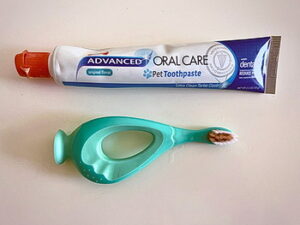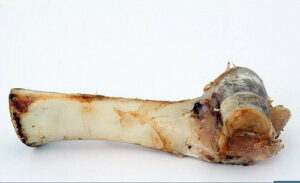
You Go to the Dentist to Have Your Teeth Checked, Right, So Why Not Your Dog?
Ensuring dogs’ dental health is a crucial aspect of pet ownership. While it might not be the first thing that comes to mind when caring for our furry companions, dental care plays a significant role in their overall well-being.
Dogs, like humans, are susceptible to various dental issues, including periodontal disease, tooth decay, and oral infections. Ignoring dental health can lead to discomfort, pain, and potential systemic health problems such as heart disease. Therefore, regular dental check-ups are essential to prevent your pet from acquiring a worsening situation.
In this article, we will explore why dogs should have their teeth checked, the importance of dental hygiene, signs of dental problems, preventive measures, and how veterinary professionals can assist in maintaining optimal oral health for our canine friends.
Start with Tooth Brushing

Yes, you heard it right. Your dogs should brush their teeth regularly. But you need to intervene if they are having difficulty reaching their mouths with their paws.
Use toothpaste formulated for dogs and do it on a routine basis.
Additional dental care methods should also be used, such as feeding them a diet that promotes dental health, such as dry kibble or dental-specific diets, and giving them toys they can chew on.
Eating the Right Food is Essential!

We all know that some foods we eat can harm our teeth. They may taste good, but bad things come along with them. Same with your pet.
Research what foods you can give your dog for healthy teeth. We’ll start by giving the dog a bone—an animal bone, that is, not those plastic ones.
How to Detect Bad Teeth
Dog owners must be aware of the signs of dental problems in their pets. These may include:
- Bad breath: Persistent foul breath can indicate dental issues such as periodontal disease or oral infections.
- Visible tartar buildup: Yellow or brown deposits on the teeth indicate the presence of plaque and tartar, which can contribute to gum disease.
- Red, swollen, or bleeding gums: Inflammation and bleeding of the gums are common signs of gingivitis, an early stage of periodontal disease.
- Difficulty chewing or reluctance to eat: Dental pain or discomfort can make chewing painful for dogs, leading to changes in eating habits.
- Tooth discoloration or loose teeth: These can indicate advanced dental disease and may require immediate attention from a veterinarian.
What Diseases can dogs get if Their Teeth are not Healthy?
Periodontal Disease
This is a common issue among dogs. It starts with the buildup of plaque and tartar on the teeth, which can lead to gingivitis and gum inflammation. If left untreated, gingivitis can progress to periodontitis, a more severe condition involving destroying the tissues and bones that support the teeth. Ultimately, this can result in tooth loss.
Regular dental check-ups by a veterinarian are crucial for early detection of periodontal disease. During these examinations, the veterinarian will assess the dog’s teeth, gums, and oral cavity for any signs of disease or abnormalities.
Your Dog Health’s Summary

Being proactive about your dog’s dental health can help prevent serious dental issues and maintain your pet’s overall well-being. Regular dental check-ups and proper at-home dental care are crucial in ensuring that dogs have healthy teeth and gums throughout their lives.
Veterinary professionals also play a crucial role in assisting dog owners with dental hygiene. The vets can guide you on proper dental practices, recommend appropriate dental products, and perform thorough examinations and cleanings as needed.
In cases where dental problems are detected, veterinarians can offer treatment options to address the issue and alleviate any discomfort or pain the dog may be experiencing.

